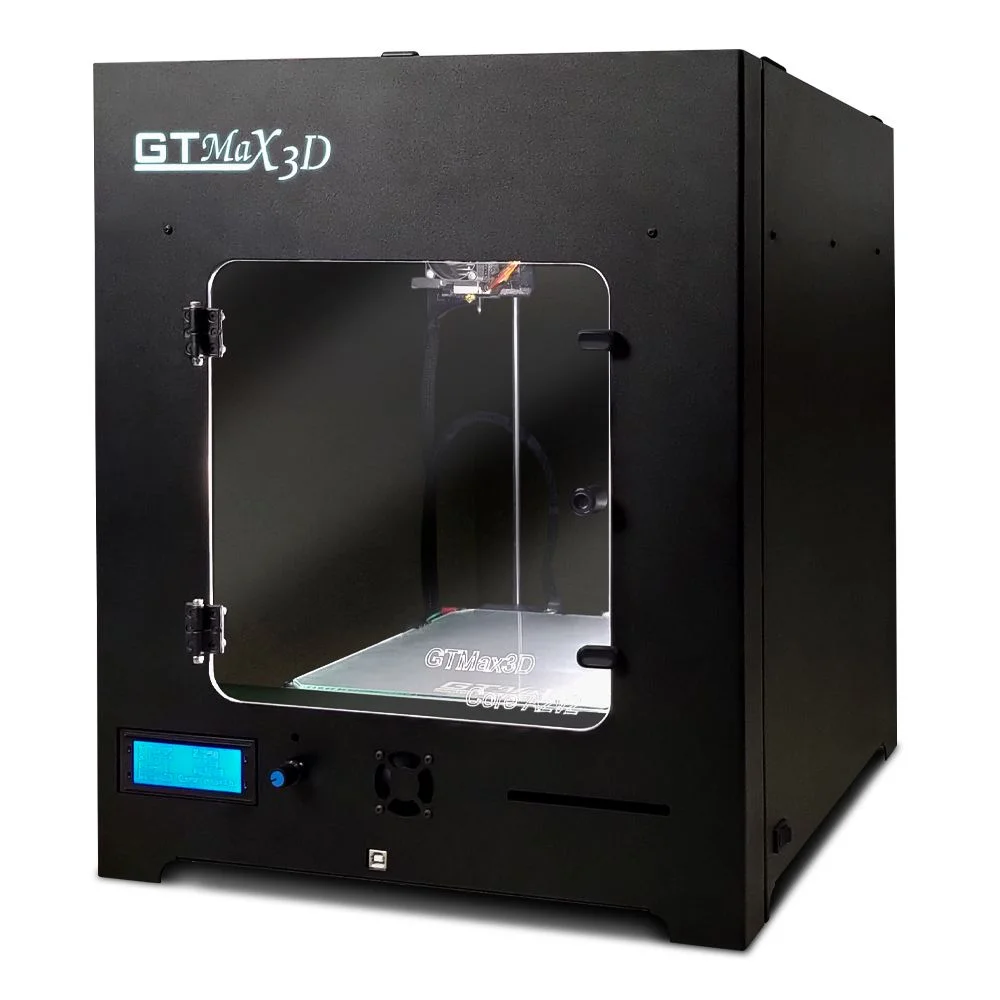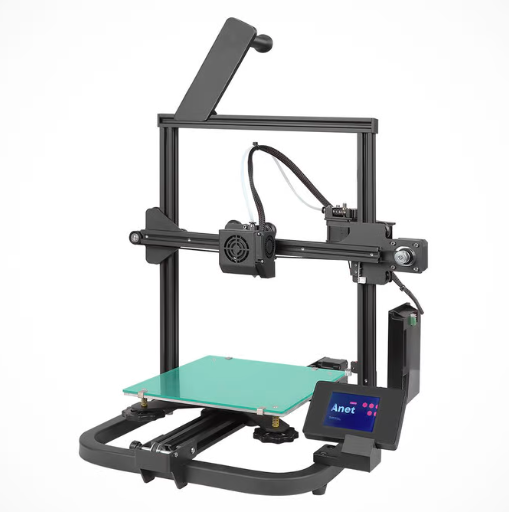Compare Core A2V2 vs A8 V2
Comparison between the best 3D printers
Choose the best 3D printer at the best price. The cheapest 3D printers are here.
Buy a 3D printer here with 3D Fila.
 |
 |
|
| Model | Core A2V2 |
A8 V2 |
| Printing Material | Filament | Filament |
| Buy Filament for GTMax Core A2V2 | Buy Filament forAnet A8 V2 | |
| Estimated price | $684,00 | $129,00 |
| Manufacturer | GTMax | Anet |
| Release Year | 2019 | 2021 |
| Print Volume [mm] | 220x220x240 | 220x220x250 |
| Printer Size [mm] | 425x460x512 | 428x441x486 |
| Weight [kg] | 6,2 | |
| Power Loss Recovery | YES | NO |
| Enclosed printer | YES | NO |
| Bed Leveling | Manual | |
| Filament End Sensor | YES | NO |
| Bed type | Heated | |
| Power supply system | Bowden | Bowden |
| Standard nozzle | 0,4 | 0,4 |
| Maximum Nozzle Temperature [°C] | 295 | 230 |
| Maximum Bed Temperature [°C] | 135 | |
| Maximum printing speed [mm/s] | 150 | 150 |
| Filament holder | YES | YES |
| Camera for supervision | NO | NO |
| Recommended filaments | PLA, PETG, Tritan, Flex, ABS | PLA |
| Recommended slicers | Cura, Simplify, Slic3r, IdeaMaker | Cura, Simplify, Slic3r, IdeaMaker |
| Maximum Resolution [mm] | 0,05 | 0,1 |
| Processor | ||
| Display | Mono | Display touchscreen 2,8'' |
| Power Supply | 110/220V / 250W | |
| Connectivity | SD / USB | SD / USB |
| Operating systems | Windows, Mac, Linux | Windows, Mac, Linux |
| Date of registration in the system | 2022-11-12 | 2022-11-10 |
| Release date | 2019 | 2021 |
| Extra features | The GTMax3D ProCore A2v2 is a compact and robust 3D printer with a printing area of ??220 x 220 x 240 mm. It offers high print quality, ranging from 0.05 mm to 0.32 mm. Its features include automatic filament detection and changing, travel speed of up to 300 mm/s, and a heated aluminum bed with a glass top. It has automatic bed leveling with 16 points and an all-metal hotend that reaches up to 298°C. The printer has a carbon steel frame with electrostatic painting, is automatic bivolt and has connectivity via USB and SD card. The Bowden system and core xy kinematics complete its advanced features. | The Anet A8 V2 is a Cartesian-XZ type 3D printer with a build volume of 220 x 220 x 250 mm, Ender 3 design and V-slot assembly. It has a 32-bit motherboard and touchscreen interface, promising ease of use. It uses open source firmware and has thermal failure protection. It stands out for its cable organization and the absence of a heated bed, focusing on energy savings and PLA printing. It comes with an external power adapter, aiming at greater safety, especially for beginners and educational use. |
| Support for multiple colors and materials (AMS and CFS) | NO | NO |
Notes * |
||
| Cost-benefit | 6 / 10 | 6 / 10 |
| Hardware | 2.5 / 10 | 0.5 / 10 |
| Tela | . | . |
| Print volume | 3 / 10 | 3 / 10 |
| Performance | 1 / 10 | 1 / 10 |
Conclusion |
| In comparing the Core A2V2 and the Anet A8 V2 3D printers, several aspects come into play, including price, features, and overall performance. The Core A2V2, while priced higher, offers a comprehensive range of features that justify the investment for serious users. It has an enclosed design, which enhances the printing experience by maintaining stable temperatures and reducing environmental disturbances. With features such as power loss recovery, filament end detection, and a heated bed with a higher maximum temperature, this printer caters to a wide variety of filaments, including more advanced materials. Additionally, the high print resolution and automated bed leveling make it suitable for producing intricate designs with greater precision. On the other hand, the Anet A8 V2 presents itself as a budget-friendly option, suitable for beginners and educational purposes. Its simpler setup and touchscreen interface dominate the user experience, making it accessible for those starting in 3D printing. However, its lack of an enclosed structure and essential features such as power loss recovery and filament detection limit its capability in more demanding printing conditions. In conclusion, if budget constraints are a primary concern, the Anet A8 V2 is a commendable choice for entry-level users. However, for those looking for more advanced capabilities and long-term value, the Core A2V2 stands out as the better investment despite its higher price, thanks to its robust feature set, enhanced reliability, and superior printing performance. The decision ultimately hinges on the user's experience, intended use, and budget considerations. |

